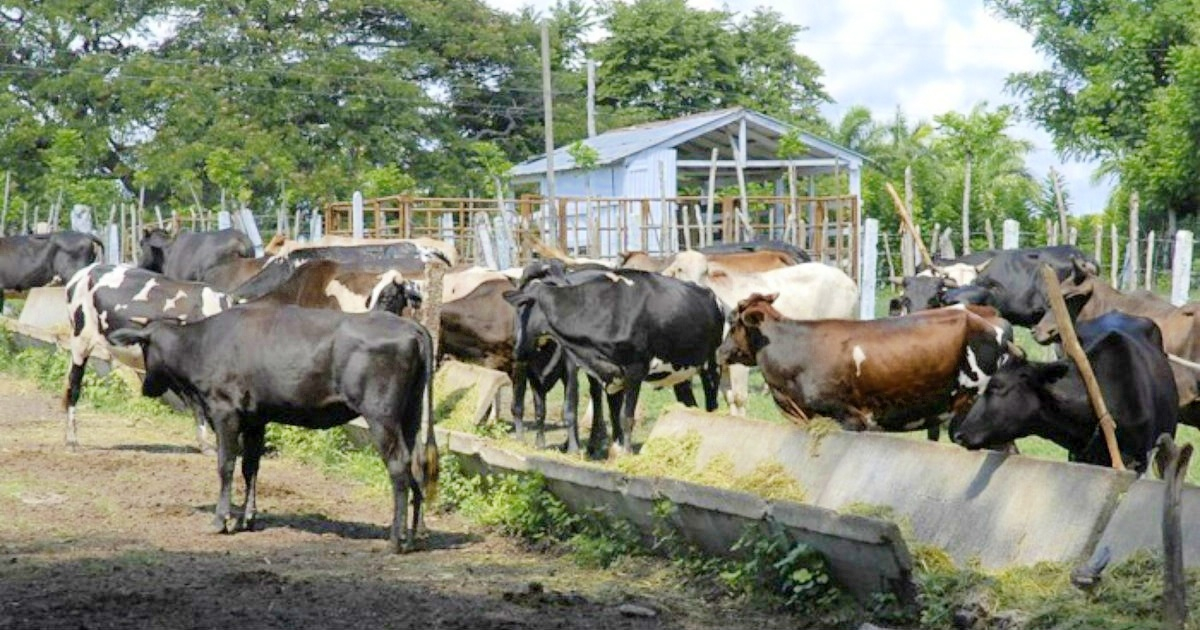
Related videos:
A national audit conducted between March 2024 and January 2025 detected 181,854 irregularities in the control of the vaccination stock in Cuba, as reported by Yudith Almeida Núñez, head of the Livestock Registry Department of the Ministry of Agriculture (MINAG).
The inspection revealed that there are currently 2,914,009 head of cattle in the country, according to information provided by Cubadebate.
Most belong to the cooperative and agricultural sector, while state-owned enterprises maintain "herds of high genetic value with pure breeds and crosses developed in Cuba."
Main irregularities detected
During the audit, which covered 191,802 property owners (188,338 individuals and 3,464 legal entities), multiple violations were identified, including:
-Owners with unknown whereabouts, deceased, abroad, or incarcerated.
-Unreported cattle births (43,143 cases).
-Illegal cattle trading.
- Unregistered or missing animals.
-Undocumented deaths and cases of theft and illegal slaughter.
The provinces with the most unresolved irregularities are Pinar del Río, Mayabeque, and Las Tunas, with a total of 1,128 unprocessed cases.
Impact on Cuban Livestock
According to the official, the process allowed for the detection of both deficiencies and progress in livestock management, as well as serving to train producers in aspects such as zoo-technical management, contracting, and authorizations for slaughter for personal consumption and commercialization.
Cattle farming in Cuba is facing a sustained crisis, characterized by a decrease in the number of livestock due to failures in breeding technologies, a shortage of veterinary supplies and food, declining productivity, theft, and illegal slaughtering.
This audit highlighted the serious structural issues within the sector and the lack of government oversight over a key activity for the supply of meat and milk in the country.
The lack of food and fodder, the shortage of veterinary supplies, the deterioration of production infrastructure, and the absence of economic incentives for producers have severely impacted livestock breeding and reproduction.
Furthermore, the increase in thefts and illegal slaughter has further diminished the cattle population.
Despite the regime's attempts to maintain control over the sector, bureaucratic restrictions and a lack of resources have hindered any significant recovery.
La producción sigue en declive, y la importación de leche en polvo continúa siendo la principal alternativa ante el desplome de la producción nacional.
Meanwhile, farmers are facing high maintenance costs, legal hurdles, and a widespread economic crisis, which deepens the uncertainty about the future of livestock farming in Cuba.
Frequently Asked Questions about Irregularities in Livestock Farming in Cuba
How many illegal activities were detected in Cuban livestock farming?
181,854 irregularities were detected in the control of the vaccination campaign in Cuba during a national inspection carried out between March 2024 and January 2025.
What are the main irregularities found in Cuban livestock farming?
The main irregularities include undeclared births, illegal buying and selling of livestock, unregistered or missing animals, and undocumented deaths. Cases of theft and illegal slaughter were also detected.
Which Cuban provinces have the most pending irregularities in livestock farming?
Pinar del Río, Mayabeque, and Las Tunas are the provinces with the most pending irregularities, accumulating a total of 1,128 cases yet to be processed.
How does the livestock crisis affect food security in Cuba?
The livestock crisis in Cuba negatively impacts the production of meat and milk, which are essential for the local diet. The lack of state control, combined with bureaucratic restrictions and resource shortages, has led to a decline in production, forcing the country to rely on imports of powdered milk.
Filed under: